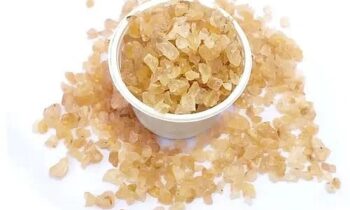Coming up next is a gathering of the absolute most recent logical investigations on the novel Covid and endeavors to discover medicines and antibodies for COVID-19.
Delta advancement contaminations likely infectious
Among individuals contaminated by the Delta variation of the Covid, completely inoculated individuals with “leap forward” diseases might be similarly possible as unvaccinated individuals to spread the infection to other people, new exploration proposes. The higher the measure of Covid in the nose and throat, the more probable the patient will contaminate others. In one Wisconsin region, after Delta became prevalent, analysts examined viral burdens on nose-and-throat swab tests got when patients were first analyzed. They discovered comparative viral burdens in inoculated and unvaccinated patients, with levels frequently sufficiently high to permit shedding of irresistible infection. “A key supposition” basic current guidelines pointed toward easing back COVID-19 transmission “is that the individuals who are inoculated are at extremely generally safe of spreading the infection to other people,” said study coauthor Katarina Grande of Public Health Madison and Dane County in Madison, Wisconsin. The discoveries, in any case, designate “that inoculated individuals should find ways to forestall the spread of the COVID-19 infection to other people,” she added. In a different report from Singapore, specialists found that while Delta viral burdens were comparative in immunized and unvaccinated patients, the viral burdens diminished quicker in the inoculated bunch.
Lambda variation shows antibody opposition
The Lambda variation of the Covid, first recognized in Peru and presently spreading in South America, is exceptionally irresistible and more impervious to immunizations than the first form of the infection the rose up out of Wuhan, China, Japanese specialists have found. In research center examinations, they tracked down that three transformations in Lambda’s spike protein, known as RSYLTPGD246-253N, 260 L452Q and F490S, help it oppose balance by immunization actuated antibodies. Two extra changes, T76I and L452Q, assist with making Lambda profoundly irresistible, they found. In a paper posted on Wednesday on bioRxiv in front of companion survey, the scientists caution that with Lambda being named a “Variation of Interest” by the World Health Organization, as opposed to a “Variation of Concern,” individuals probably won’t understand it is a significant continuous danger. Despite the fact that it isn’t clear yet regardless of whether this variation is more risky than the Delta currently undermining populaces in numerous nations, senior specialist Kei Sato of the University of Tokyo accepts “Lambda can be a possible danger to the human culture.”
Third mRNA portion might help immune response amount, yet not quality
Among completely immunized individuals who never had COVID-19, getting a third portion of a mRNA immunization from Pfizer (PFE.N)/BioNTech or Moderna (MRNA.O) would almost certainly build levels of antibodies, however not antibodies that are better ready to kill new infection variations, Rockefeller University analysts investigated Thursday on bioRxiv in front of friend audit. They note that in COVID-19 survivors, the invulnerable framework’s antibodies advance during the principal year, turning out to be more strong and better ready to oppose new variations. In 32 volunteers who never had COVID-19, they found that antibodies instigated by mRNA immunizations advanced between the first and second shots. Be that as it may, after five months, immunization incited antibodies were “same” to those seen after the subsequent portion, with “minimal quantifiable improvement” in the antibodies’ capacity to kill an expansive assortment of new variations, said coauthor Michel Nussenzweig. Consequently, he said, giving those people a third portion of a similar immunization would almost certainly bring about more elevated levels of antibodies that stay less viable against variations. “Right now, the antibody stays defensive against genuine disease,” Nussenzweig said. “Should we discover that adequacy is to be sure disappearing for genuine contamination, which isn’t actually the situation to date,” then, at that point a sponsor portion of “whatever is accessible” might become proper, he added. Should a refreshed immunization become accessible that ensures against explicit variations, “then, at that point that would be the decision.”
Larger part of U.S. childcare suppliers are inoculated
U.S. childcare suppliers have higher COVID-19 inoculation rates than U.S. grown-ups by and large, another investigation proposes. Analysts sent overviews in May and June to almost 45,000 childcare suppliers and got reactions from 48%. By and large, 78% of respondents said they were completely inoculated, contrasted and a pace of about 60% in the overall U.S. populace. Generally 73% of locally established parental figures said they were inoculated, contrasted with almost 80% of those working in offices. Rates fluctuated broadly by state, from a low of 54% in Wyoming to a high of 89% in Massachusetts. The examples of relative contrasts in inoculation rates were like what is found in everyone, the analysts gave an account of Sunday on medRxiv in front of companion audit, with more youthful, lower-pay and Black or African-Americans revealing the most reduced immunization rates. “Endeavors to advance COVID-19 antibody take-up among childcare suppliers take on added importance while thinking about the rise of the more contagious Delta variation,” the creators said. With small kids ineligible for COVID-19 inoculation, “the restricting variable in guaranteeing a sufficient stockpile of childcare administrations will be dependent upon securing the individual soundness of childcare suppliers,” they said.



